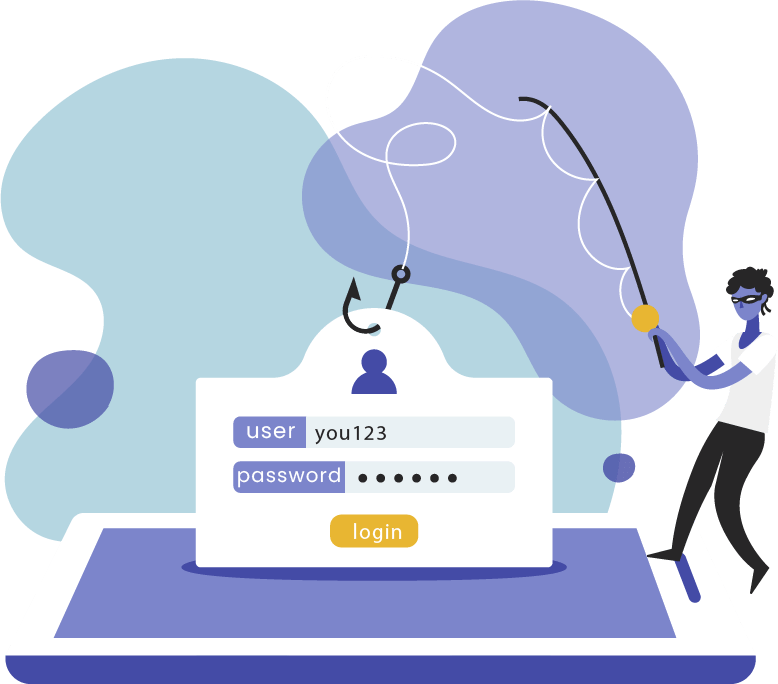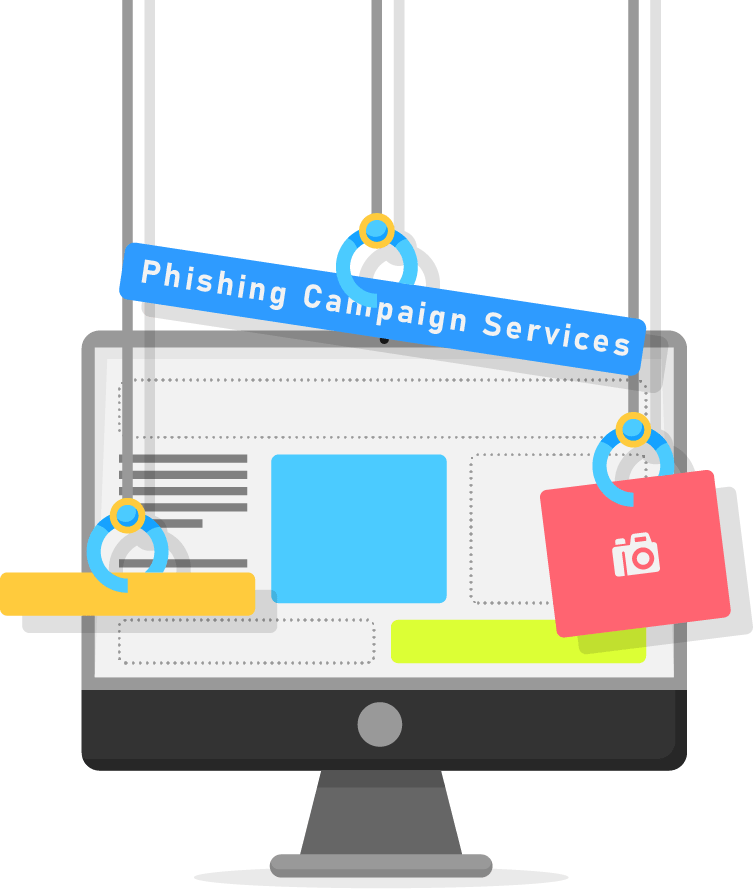In today’s digital age, where technology is advancing at a rapid pace, cybercrime has become a significant threat to businesses worldwide. Cybercriminals are becoming increasingly sophisticated, and the methods they use to obtain sensitive information are continually evolving. One of the most common forms of cyber-attacks is Phishing, which involves tricking individuals into providing sensitive information such as login credentials or personal information. Phishing attacks can occur through email, text messages, or even phone calls, and they often appear to come from a legitimate source, making them difficult to detect and solutions is Phishing Campaigns Services.
As a result, phishing campaigns have become a necessary tool for businesses to protect themselves from such attacks. A phishing campaign is a simulated attack that is designed to test the security awareness of employees and identify vulnerabilities in a company’s systems. Phishing campaigns can help businesses assess the effectiveness of their cybersecurity measures and educate employees on best practices to avoid falling for phishing scams. Phishing campaigns are an essential component of any comprehensive cybersecurity strategy. Without regular phishing campaigns, businesses would be at risk of losing sensitive information, which could result in financial loss, reputational damage, and legal consequences. By conducting regular Phishing Campaigns Services and assessing the results, businesses can take proactive steps to protect their data and comply with industry regulations.
Email Phishing: This is the most common type of phishing campaign, where cybercriminals send emails that appear to come from a legitimate source, such as a bank or a government agency.
Spear Phishing: This type of Phishing Campaigns Services targets specific individuals or organizations, and the cybercriminals research their targets to create a personalized and convincing message. The email might appear to come from a colleague or a business partner, and the content is tailored to the recipient’s interests or concerns.
Smishing: This type of phishing campaign involves sending text messages that appear to come from a legitimate source, such as a bank or a delivery company. The message typically contains a link that leads to a fake website designed to steal sensitive information.
Vishing: This type of phishing campaign uses voice calls to trick individuals into providing sensitive information. The caller might pretend to be a representative from a bank or a government agency and ask for personal information, such as social security numbers or credit card details.
Whaling: This type of phishing campaign targets high-level executives, such as CEOs or CFOs, and uses social engineering tactics to trick them into providing sensitive information or authorizing fraudulent transactions.

Why Phishing Campaigns are Important?

Identify Vulnerabilities: Phishing campaigns simulate real-world attacks and help identify vulnerabilities in a company’s systems. By conducting regular phishing campaigns, businesses can determine how susceptible their employees are to phishing scams and take corrective actions to improve their security posture.
Educate Employees: Phishing campaigns provide an opportunity to educate employees on best practices for avoiding phishing attacks. By analyzing the results of the campaigns, businesses can identify areas where employees need more training and provide targeted awareness campaigns to improve security awareness.
Compliance: Many industries have regulations and standards that require businesses to conduct regular phishing campaigns.
Protect Sensitive Information: Phishing attacks can result in significant financial loss, reputational damage, and legal consequences. By conducting regular phishing campaigns, businesses can proactively protect their sensitive information from cybercriminals.
Improve Cybersecurity Measures: By analyzing the results of phishing campaigns, businesses can identify weaknesses in their cybersecurity measures and take corrective actions to improve them.
Phishing Kits: Phishing kits are pre-packaged sets of tools and templates that allow cybercriminals to easily create convincing phishing emails and websites. These kits are readily available on the dark web and can be purchased for a few hundred dollars.
Email Spoofing Tools: Email spoofing tools allow cybercriminals to send emails that appear to come from a legitimate source, such as a bank or a government agency. These tools can manipulate the sender’s address and make it appear as if the email is coming from a trusted source.
Fake Login Pages: Fake login pages are used to trick individuals into providing their login credentials for a particular website or service. These pages are designed to look identical to the legitimate login pages of popular websites, such as banks or social media platforms.
Malware Kits: Malware kits are used to infect a victim’s computer with malware, which can be used to steal sensitive information, such as login credentials or financial information. These kits are often disguised as legitimate software or attachments in phishing emails.
URL Shorteners: URL shorteners are used to hide the true destination of a link in a phishing email. Cybercriminals use these tools to make the link appear innocuous and increase the likelihood of the victim clicking on it.


Experience and Expertise: Securium Solution has extensive experience and expertise in the cybersecurity industry. Its team of professionals includes certified security experts who have worked with a wide range of businesses across different industries.
Comprehensive Services: Securium Solution provides a comprehensive range of cybersecurity services, including phishing campaign services, anti-phishing campaign, phishing campaign assessment, phishing campaign analysis, and more.
Cutting-Edge Technology: Securium Solution uses cutting-edge technology to provide its services. This includes advanced email security solutions, anti-phishing software, and other cybersecurity tools that are designed to protect businesses from the latest threats.
Customized Solutions: Securium Solution understands that every business is unique, and there is no one-size-fits-all solution for cybersecurity. That’s why it provides customized solutions tailored to the specific needs of each business.
Proactive Approach: Securium Solution takes a proactive approach to cybersecurity. It conducts regular assessments to identify vulnerabilities and provides targeted awareness campaigns to educate employees on best practices for avoiding phishing attacks.
When it comes to cybersecurity, businesses need to ask the right questions to ensure they are getting the protection they need. Here are some key security questions you need to ask:
The cost of a phishing campaign service can vary depending on the provider and the scope of the service. It’s important to get a clear understanding of the pricing model, including any recurring costs, so that you can budget accordingly.
The time it takes to set up a phishing campaign can vary depending on the complexity of the campaign and the provider. It’s important to get a clear timeline for the set-up process so that you can plan accordingly.
There are different types of phishing campaigns, including spear phishing, clone phishing, and whaling. It’s important to understand which types of campaigns the provider offers and which ones are best suited for your business.
Phishing campaign analysis can include a range of metrics, such as click rates, open rates, and engagement rates. It’s important to understand what type of analysis the provider offers and how it will help you improve your cybersecurity posture.
Phishing emails and websites need to be authentic-looking to be effective. It’s important to understand how the provider ensures the authenticity of the phishing emails and websites and what measures are in place to prevent false positives.
Phishing campaigns involve collecting data from employees, such as login credentials and personal information. It’s important to understand how the provider ensures the confidentiality of this data and what measures are in place to prevent data breaches.
Depending on the industry, there may be regulations in place regarding data privacy and cybersecurity. It’s important to understand how the provider ensures compliance with these regulations and what measures are in place to prevent regulatory fines and penalties.